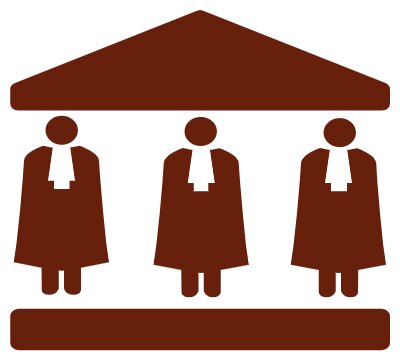Best Domestic Violence Lawyers in Malaysia
Share your needs with us, get contacted by law firms.
Free. Takes 2 min.
Free Guide to Hiring a Family Lawyer
Or refine your search by selecting a city:
List of the best lawyers in Malaysia
About Domestic Violence Law in Malaysia
Domestic violence in Malaysia is recognized as a serious violation of human rights that transcends social, cultural, and economic boundaries. The Malaysian government has taken significant steps to address this issue, with the implementation of the Domestic Violence Act (DVA) 1994 serving as a cornerstone of these efforts. The law aims to provide protection for victims of domestic abuse and ensure that perpetrators are held accountable for their actions. Domestic violence can include physical, emotional, sexual, and psychological abuse within a domestic setting, including violence between spouses, partners, or against children and family members.
Why You May Need a Lawyer
Seeking legal assistance can be vital in various situations related to domestic violence. Here are some common scenarios where you may require a lawyer:
- Understanding your rights and the protection available under the law.
- Filing for court protection orders or injunctions to ensure your safety.
- Navigating the legal procedures involved in reporting domestic violence.
- Handling divorce or custody proceedings affected by domestic violence incidences.
- Seeking compensation or restitution for harm suffered through civil lawsuits.
- Defending against false accusations or understanding the implications of allegations.
Local Laws Overview
Malaysia's Domestic Violence Act 1994, amended in 2012 and 2017, lays the foundation for tackling domestic violence. Key aspects of the legislation include:
- Definition of domestic violence: Covers physical, emotional, psychological, sexual, and financial abuse.
- Protection orders: Victims can obtain Interim Protection Orders (IPO) and Protection Orders (PO) from the court to prevent further abuse.
- Police Duties: Law enforcement officers are required to assist victims, including arranging transportation to safe shelters and medical treatment.
- Criminal Proceedings: Perpetrators can face criminal charges under the Penal Code for acts of violence, leading to fines and imprisonment.
Frequently Asked Questions
What constitutes domestic violence under Malaysian law?
Domestic violence includes physical harm, sexual abuse, emotional and psychological abuse, intimidation, harassment, and damage to property that is intended to harm or exert power over a family member.
How can I obtain a protection order?
A victim can apply for an Interim Protection Order (IPO) through a police report. A magistrate can issue this order to provide immediate protection until a full court hearing occurs.
Are non-married partners protected under the Domestic Violence Act?
Yes, non-married partners, including those in relationships akin to a family relationship, are protected under the legislation.
What should I do if I am experiencing domestic violence?
If you find yourself in an abusive situation, ensure your immediate safety. Contact the police, seek medical attention if needed, and consider reaching out to organizations specializing in domestic violence support.
Can I include domestic violence incidents in divorce proceedings?
Yes, evidence of domestic violence can be a significant factor in divorce proceedings, particularly concerning custody and division of assets.
What are the penalties for violating a protection order?
Violation of a protection order is a criminal offense and can lead to a fine of up to RM2,000 or imprisonment for up to six months, or both.
How does domestic violence affect child custody decisions?
Courts consider the best interest of the child, and evidence of domestic violence can influence custody and visitation rights, with potential restrictions on an abusive party's access to the child.
Is there a time limit for reporting domestic violence?
While there's no strict time limit, it is advisable to report any instances of domestic violence as soon as possible to facilitate effective legal action and protection for the victim.
What support can I expect from the Malaysian police?
The police are trained to handle domestic violence cases, provide immediate assistance, help secure protection orders, and arrange for victim support services.
Can domestic violence offenders seek rehabilitation?
Yes, perpetration of domestic violence is often addressed through both punitive measures and rehabilitation programs, aiming to alter the offender's behavior and prevent future abuse.
Additional Resources
There are several resources and organizations in Malaysia dedicated to supporting those affected by domestic violence:
- Women's Aid Organisation (WAO): Offers shelter, counseling, and advocacy for domestic violence survivors.
- Talian Kasih: A 24-hour helpline (15999) for counseling and support services.
- Sisters in Islam (SIS): Provides legal advice and support particularly for Muslim women.
- Ministry of Women, Family, and Community Development: Implements policies and programs to combat domestic violence.
Next Steps
If you believe you need legal assistance related to domestic violence, consider taking the following steps:
- Ensure your immediate safety and reach out for help through hotlines or local authorities.
- Consult with a lawyer who specializes in family law or domestic violence cases to understand your legal options.
- Document any instances of abuse with photographs, medical reports, and witness statements.
- Consider contacting local support groups or shelters for additional resources and assistance.
- Prepare any necessary documents for court proceedings, including applications for protection orders or divorce if applicable.
Lawzana helps you find the best lawyers and law firms in Malaysia through a curated and pre-screened list of qualified legal professionals. Our platform offers rankings and detailed profiles of attorneys and law firms, allowing you to compare based on practice areas, including Domestic Violence, experience, and client feedback.
Each profile includes a description of the firm's areas of practice, client reviews, team members and partners, year of establishment, spoken languages, office locations, contact information, social media presence, and any published articles or resources. Most firms on our platform speak English and are experienced in both local and international legal matters.
Get a quote from top-rated law firms in Malaysia — quickly, securely, and without unnecessary hassle.
Disclaimer:
The information provided on this page is for general informational purposes only and does not constitute legal advice. While we strive to ensure the accuracy and relevance of the content, legal information may change over time, and interpretations of the law can vary. You should always consult with a qualified legal professional for advice specific to your situation.
We disclaim all liability for actions taken or not taken based on the content of this page. If you believe any information is incorrect or outdated, please contact us, and we will review and update it where appropriate.
Browse domestic violence law firms by city in Malaysia
Refine your search by selecting a city.
















